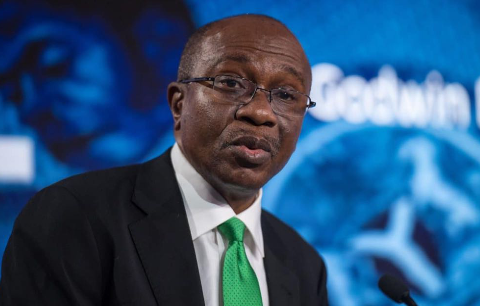The Nigerian Government recorded an overall deficit of N6,233.60 billion in half-year 2022 due to revenue shortfall.
This was disclosed by the Central Bank of Nigeria (CBN) in its Financial Stability Report for June 2022, published on Friday and obtained by Nairametrics.
The report noted that the overall deficit is indicative of an expansionary policy stance. Part of the report said:
- “Provisional data on Federal Government Retained Revenue, at N2,134.47 billion in the first half of 2022, fell short of the budget benchmark by 60.30 per cent, reflecting the subsisting revenue challenges. Provisional aggregate expenditure, at N8,368.06 billion in the first half of 2022, was below the prorated budget by 2.30 per cent, owing to the shortfall in capital expenditure. Consequently, the fiscal operations of the Federal Government resulted in an overall deficit of N6,233.60 billion, indicative of an expansionary policy stance.”
Data on domestic debt: The report further disclosed that total domestic debt of N24,986.87 billion was recorded as of ending of March 2022, reflecting an increase of N286.67 billion or 1.16% compared with N23,700.80 billion in end-December 2021.
- “The increase was driven, largely, by Nigerian Treasury Bills, FGN Savings Bond and FGN Bonds issues. The FGN portion constituted 80.62 per cent, while states and FCT held 19.38%. In end-March 2022, the FGN domestic debt stood at N20,144.03 billion (54.80 per cent of total FGN debt), while the FGN external debt was N16,617.19 billion (45.20 per cent) (Fig 1.4),” the report explained.
CBN added FGN Bond issues maintained its dominance, accounting for 70.70 per cent of the total domestic debt, followed by Treasury Bills (21.88 per cent), Promissory Notes (3.79 per cent), FGN Sukuk (3.03 per cent), and others1 (0.60 per cent).
Meanwhile, Nigeria’s consolidated external debt comprised multilateral, commercial and bilateral loans, which accounted for 47.43, 39.83 and 11.25 per cent, respectively, while ‘other’2 loans constituted 1.50%.
Nigeria’s external reserves: As of June 2022, Nigeria’s gross external reserves decreased by 2.66 per cent to US$39.16 billion, from US$40.23 billion in end-December 2021. A breakdown of the reserves indicated that the CBN, FGN and Federation holdings were 96.84, 3.07% and 0.09%, respectively.
The currency composition showed that 76.59% of the reserves were held in US dollars, 12.88% in SDRs, 9.32% in Renminbi and 1.21% in other currencies. Total inflow to the external reserves was US$16.40 billion in the first half of 2022, compared with US$26.01 billion in the second half of 2021, reflecting a decrease of 36.95%.
What you should know: President Muhammadu Buhari proposed an annual budget of N20.51 trillion for the year 2023, a 19.8% increase when compared to the N17.13 trillion approved for 2022 including the supplementary budget.



